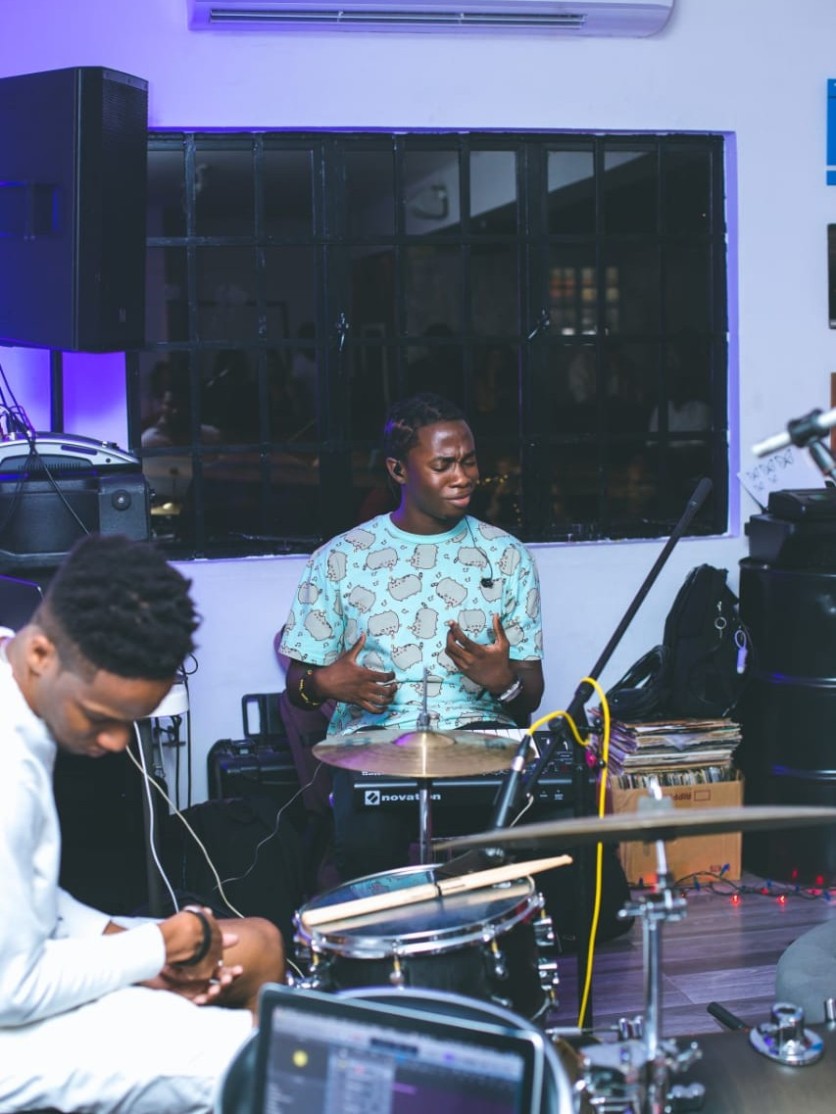
Artificial intelligence is no longer confined to tech labs or sci-fi novels. Increasingly, it's finding its way into the realms of art, filmmaking, and—perhaps most intriguingly—music production. Some experts hail this age as one of "mass creativity," where AI-driven tools empower anyone with a passion for music to compose, produce, and even distribute original work. In a world that once reserved these processes for the highly skilled or well-resourced, this shift signals a watershed moment.
At the center of this transformative wave stands Reuel Williams, Founder and CEO of Cai Creative, Inc. Armed with expertise in mathematics, computer science, and physics from Princeton University, Reuel possesses both the analytical prowess and artistic sensibility to reimagine how music is made. In short, he's not just blurring lines between composer and coder—he's moving those lines entirely.
From Early Experiments to Technological Breakthroughs
A Teen Producer with Big Ideas
Reuel's story begins in his teenage bedroom, where, at just 16, he first began experimenting with production software. It was here that he developed a fascination for the interplay between math and music—a passion that would eventually shape his academic pursuits and professional path.
Academic Catalyst
During his time at Princeton, Reuel's diverse studies in math, computer science, and physics introduced him to groundbreaking research in AI. But it was the Silicon Valley TigerTrek program—a whirlwind tour of startup culture—that profoundly impacted him. Observing how innovative ideas become thriving ventures sparked a vision: He would leverage AI to open the floodgates of creativity in music.
"One has to think very deeply about how the average person is going to use this," Reuel reflects, "in a way that harnesses the strength of AI while enhancing the inherent creativity we all have."
Cai Creative: Democratizing Music Production
Mission: Inclusivity in Creation
Cai Creative's guiding principle is that advanced technology should level the playing field—allowing anyone with a spark of inspiration to become a music creator. Whether you're a seasoned pro or a newcomer who has never touched a piano key, Cai Creative's AI-based tools offer an immediate, intuitive way to bring musical ideas to life.
Tools That Collaborate, Not Replace
Traditional production often demands a hefty knowledge of theory, software, and sound engineering. Cai Creative flips that paradigm by harnessing Large Language Models (LLMs) to handle many of these complexities. Rather than merely churning out fully formed compositions, the software interacts with artists like a creative partner, suggesting lyric structures, chord progressions, and melodies—all while keeping the human artist at the helm.
"I see humans stepping into the role of creative director, rather than being bogged down by technical details," Reuel explains. "Think of it as Michael Jackson and Quincy Jones, but for the everyday artist. AI refines and polishes while the human spirit drives the vision."
Bridging Music and Visual Art: An NFT Milestone
One of Reuel's standout achievements is his NFT art collaboration with digital artist Diana Sinclair. Imagine 52 images, each representing a distinct mood or moment across the weeks of a year. Reuel composed two "anchor" pieces to capture the start and culmination of this journey, then used custom code to sample a high-dimensional vector space between these compositions.
- Algorithmic Storytelling: Each of the 50 images in between was matched with its own unique musical piece, preserving an overarching thematic unity while allowing for endless creative variation.
- Innovation in Practice: By blending visual art with tailored soundscapes, Reuel showcased the vast potential of AI to enrich stories, evoke emotion, and push boundaries in the NFT realm.
- Impact: The project, which was sold at Christie's, underscored the power of AI not just to replicate human creativity but to expand it—proving that the union of code and composition can yield extraordinary results.
The Future of AI-Enhanced Creativity
Going Beyond Audio Files
AI has proven adept at analyzing vast repositories of music data and making suggestions based on user prompts. But there's still a gap in how humans think about music (as notes, structure, and emotion) versus how AI often renders music (as a raw audio file). Reuel's vision is to generate music at the note level, enabling effortless, real-time editing that aligns with the way composers naturally brainstorm.
"Diffusion-based systems that output audio files are useful," he concedes, "but humans typically think, 'Let me create a melody,' not 'Let me create an audio file.' By focusing on notes rather than just sound waves, we make the entire creative process faster, more efficient, and vastly more adaptable."
Ethical and Copyright Considerations
As AI ventures deeper into artistic domains, questions about authorship and ethics inevitably emerge. Reuel is adamant that protecting intellectual property and respecting creators' rights are paramount. Cai Creative's training models are built with transparency and user control at their core, ensuring ethical data sourcing and the clear attribution of creative contributions.
"We don't want AI to feel like it's composing for you," Reuel says. "It should feel like it's composing with you. That distinction is both experiential and ethical."
Toward a Global Creative Renaissance
In Reuel's future, the barriers that once separated "professional" musicians from hobbyists will crumble entirely. Students can craft sophisticated compositions from a laptop in their dorm room; undiscovered talent can refine a single spark of an idea into a polished track that resonates worldwide. And at the center of this cultural renaissance sits Cai Creative's platform, serving as a magnet for the next generation of AI-first artists.
Q&A with Reuel Williams: Insights and Aspirations
Q: What unique challenges do you face when developing AI for creative expression?
Reuel: "AI still struggles with temporal and visual elements, so we do a lot of workarounds to leverage human intuition about how time flows or how images can be interpreted alongside music. It's about letting humans be the masters of concept while AI handles some of the 'heavy lifting' of execution."
Q: How do you see Cai Creative shaping the future of music?
Reuel: "We're focusing on seamless note-level editing, making it easier to create, tweak, and finalize work. The idea is to shift the burden off the artist's shoulders—so you can concentrate on the bigger story you want to tell."
Q: How do you balance maintaining the human element of creativity while using AI?
Reuel: "It's all about preserving a sense of collaboration. The best music has emotion, story, and intention. AI provides the scaffolding, but your emotional narrative remains front and center."
Looking Ahead
Reuel's ambition is as boundless as the possibilities of AI itself. From expanding Cai Creative into a global network of AI-driven music platforms to championing the ethical evolution of creative technology, his sights are set on nothing less than a full-scale revolution in how we conceive, compose, and share music.
"We're on the cusp of a paradigm shift," he says. "AI can be a tool for mass empowerment, letting every person become an auteur of their own story—through song, through sound, through any artistic medium you can imagine."
Music has always held the power to connect us across cultures and generations. As AI takes center stage in the creative industries, it's innovators like Reuel Williams who ensure that technology amplifies, rather than overshadows, human artistry. Through Cai Creative, Reuel is not just opening doors—he's constructing an entirely new kind of stage where every voice can resonate and every story can find its rhythm.
In this new era of composition, it's no longer "man versus machine" but "man and machine in harmony." Whether you're a Grammy winner or someone humming a tune for the first time, the tools of the future are within reach. And with visionaries like Reuel guiding the way, the soundtrack of tomorrow promises to be as inclusive, dynamic, and breathtakingly creative as the imaginations that spark it.
ⓒ 2025 TECHTIMES.com All rights reserved. Do not reproduce without permission.




